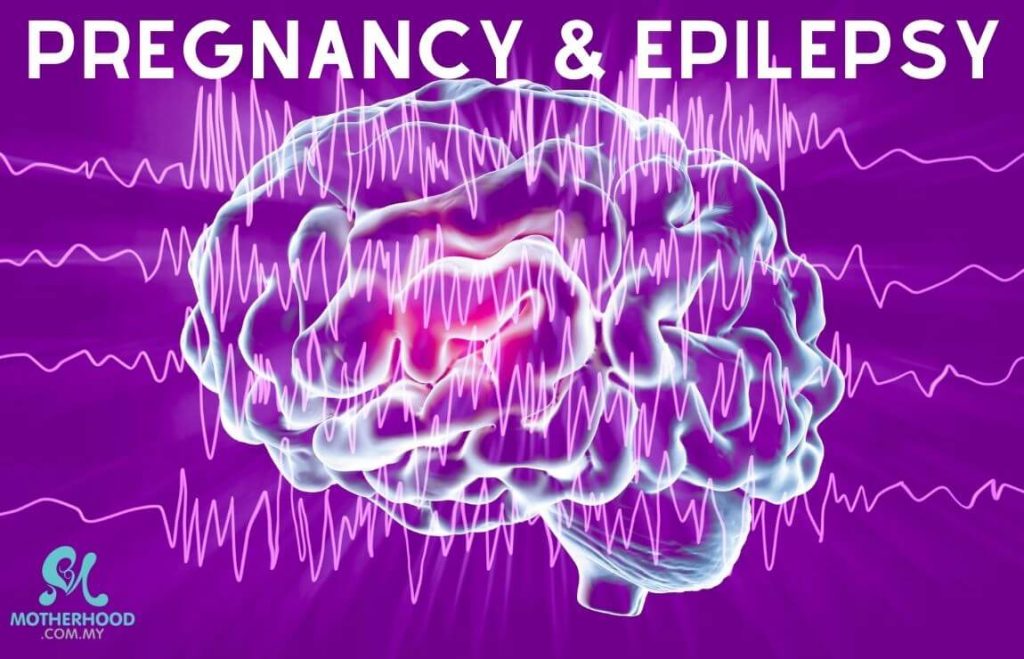Purple Day is a grassroots event aiming at promoting global awareness of epilepsy, which affects more than 65 million people worldwide. In conjunction with Purple Day (also known as Epilepsy Awareness Day), held every 26th March, Motherhood Story brings you another highlight of this topic to create more awareness, and to understand better how pregnancies can be managed around this condition.
Epilepsy is a common condition that affects the brain and causes frequent seizures. Seizures are bursts of electrical activity in the brain that temporarily affect how it works.
Some of the symptoms include:
- uncontrollable jerking and shaking, called a ‘fit’
- losing awareness and staring blankly into space
- becoming stiff
- strange sensations, such as a ‘rising’ feeling in the tummy, unusual smells or tastes, and a tingling feeling in your arms or legs
- collapsing
- passing out and not remembering what happened
(Source: NHS, UK)
The prevalence of epilepsy in Malaysia is about 7.8 out of 1,000 people. It may seem a small percentage, but this data is not a complete representation as it was obtained from a door-to-door survey.
For some women, epilepsy is something they need live with. In the past, women with this condition were advised to avoid pregnancy. Today, it is no longer the case, as women are properly and successfully assisted to manage their pregnancies from preconception to postpartum stage.
In this article, we will look into the considerations of getting pregnant for women with epilepsy.
Risks in Pregnancy
Understandably, there are concerns on the risks involved. But take heart that 90% of women with epilepsy have successful and healthy pregnancies and most importantly, deliver and raise healthy babies.
Some special care is certainly needed during the pregnancy, and here are some things to know.
What Are the Chances of Having Seizures During Pregnancy?
If you have not had an episode in the nine months before conceiving, it is not likely to happen during pregnancy. However, it is also safer to continue with your prescribed medication, and do consult your doctor when planning for your pregnancy so that you can get the best care.
What are some of the risks of seizures during pregnancy?
- Foetus has slowing heart rate
- Decreased oxygen to foetus
- Premature birth
How Does Epilepsy Affect Pregnancy?
Every woman’s body has different reactions during pregnancy. Mostly, the frequency of seizures remains the same for pregnant women. However, for some, these episodes do become less frequent. However, for those who are not consistently on their medication or are sleep deprived, it could result in higher frequency during pregnancy.
Is It Safe to Consume Seizure Medication During Pregnancy?
It is best to speak with your treating doctors and gynae about your condition, and get their advice and prescription for the safest medication and dosage. In general, some anti-seizure medications have potential side effects, but the risk is related to higher doses or ingesting more than one anti-seizure medication.
You may be recommended to consume a higher dosage of folic acid supplement as folic acid helps to prevent neural tube defects, serious abnormalities of the brain and spinal cord.
Will I Pass Down Epilepsy to My Baby?
As they grow older, babies born to mothers with epilepsy have a slightly higher risk of developing seizures.
What Should I Do if I Have Seizures During My Pregnancy?
Promptly inform your doctor, and he or she may look into your medication requirement and also monitor your baby more closely.
Will It Affect the Delivery of the Baby?
Most women with epilepsy delivery their babies without complications, and seizures during labour are not common. They are also able to use the same forms of pain relief during labour as other mummies.
In the case of a seizure happening during delivery, your doctor may stop it with intravenous medication. If it is a prolonged one, you may be advised to deliver by C-section.
However, if you experience frequent seizures during your last semester of pregnancy, you may have a higher risk of a seizure during delivery. Your doctor will best advise you on the method of delivery that’s safest for you and baby.
Will It Be Safe to Breastfeed My Newborn While I’m Still on Seizure Medication?
Do talk to your doctor once again and you may be recommended to change to a suitable medication and dosage that’s safe for breastfeeding.
We hope this article helps any epileptic women, especially if they may be considering pregnancy. Do remember to share this piece with your loved ones—let’s aid in overcoming the stigma of epilepsy once and for all. This Purple Day, take it upon yourself to educate others and increase awareness about the condition to debunk epilepsy stereotypes.
For more insightful stories and fun recipes, stay tuned to Motherhood Story!
